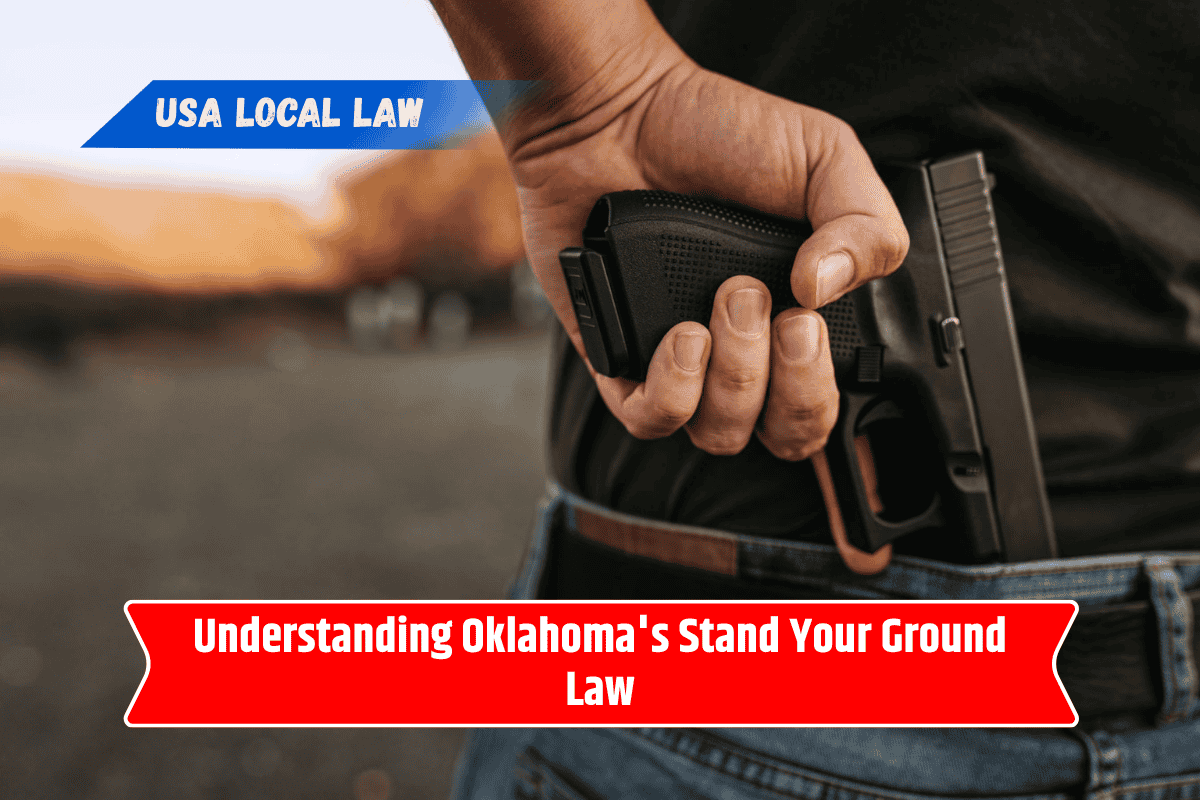In today’s world, personal safety is a serious concern. In Oklahoma, the Stand Your Ground law gives people the right to protect themselves without having to retreat when facing a threat.
But what does this law really mean, and when does it apply? Let’s break it down into simple, clear terms so you can understand your rights and responsibilities under Oklahoma’s self-defense law.
What is the Stand Your Ground Law?
Oklahoma’s Stand Your Ground law is a part of the state’s self-defense rules. It allows individuals to use deadly force without the duty to retreat if they believe they are in danger of death or serious injury. This law applies when a person is:
In a place they have a legal right to be, like their home, car, or workplace
Not engaged in any criminal activity
Facing a real and immediate threat from someone else
This means if someone attacks you, and you truly believe your life is in danger, you don’t have to try to run away before defending yourself.
How is This Different from Castle Doctrine?
Oklahoma also has what’s called the Castle Doctrine, which is closely related to Stand Your Ground. The Castle Doctrine applies specifically to your home, giving you the legal right to use force—even deadly force—to protect yourself and others inside.
The key difference is:
Castle Doctrine: Applies to self-defense inside your home.
Stand Your Ground: Applies anywhere you have the right to be (public places, your car, etc.).
So, while both laws protect your right to self-defense, Stand Your Ground gives you more freedom to protect yourself outside your home.
When Can You Use Force Under This Law?
According to Oklahoma law, you can use force, including deadly force, if you:
Honestly believe it’s necessary to protect yourself or someone else from death or great bodily harm.
Are not the person who started the fight or conflict.
Are not breaking the law when the incident happens.
Examples where this law might apply:
Someone tries to rob you at gunpoint in a parking lot.
An intruder breaks into your home and threatens you with a weapon.
A person attacks you while you’re sitting in your parked car.
When the Law Does Not Protect You
Stand Your Ground doesn’t give you a free pass to use violence in any situation. It does not apply if:
You were the one who started the conflict or provoked the other person.
You were involved in illegal activity at the time of the incident.
You continued using force after the threat had clearly ended.
You misread the situation and used force without a real threat being present.
If your actions don’t meet the legal standard of self-defense, you could still face criminal charges.
Legal Protection and Immunity
One important part of Oklahoma’s Stand Your Ground law is that it offers criminal and civil immunity. This means:
If your use of force is legally justified, you cannot be charged or sued for it.
The law protects you from civil lawsuits filed by the attacker or their family.
However, whether or not you get this immunity depends on the facts of the case and sometimes must be decided by a judge in court.
What Should You Do After Using Force in Self-Defense?
If you ever have to defend yourself under the Stand Your Ground law, it’s important to act carefully:
Call 911 immediately and report the incident.
Do not leave the scene, unless you need medical help.
Cooperate with police, but you have the right to remain silent until you speak to a lawyer.
Contact an attorney experienced in self-defense laws as soon as possible.
Oklahoma’s Stand Your Ground law is designed to protect law-abiding citizens who must defend themselves in dangerous situations. It removes the duty to retreat and allows you to stand your ground if you are facing a serious threat.
But like any law, it must be used responsibly. Knowing when and how this law applies can help you stay safe and within your legal rights. If you’re ever in doubt, speak to a legal expert and stay informed—because self-defense should never lead to unnecessary legal trouble.
